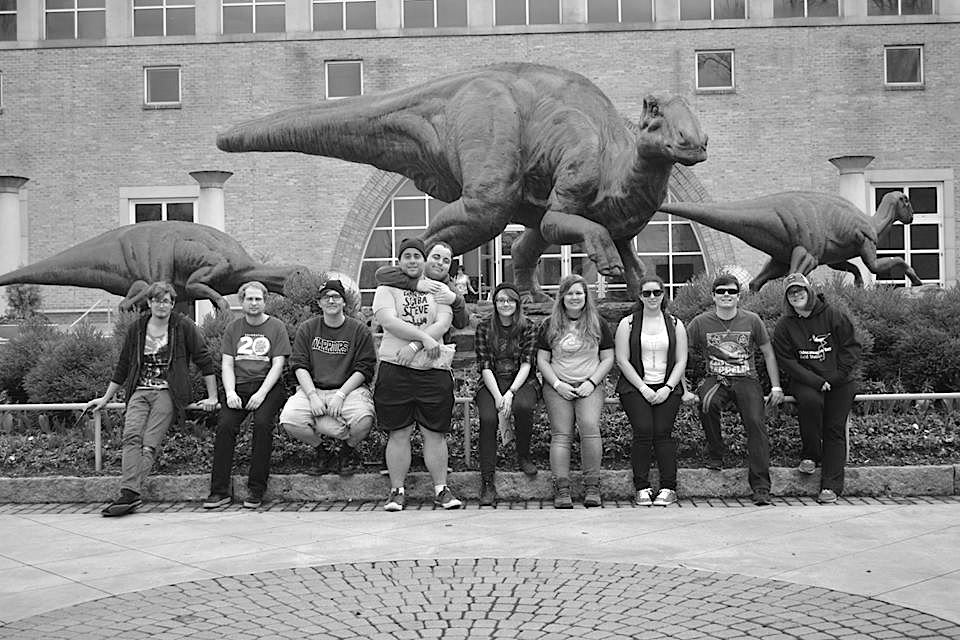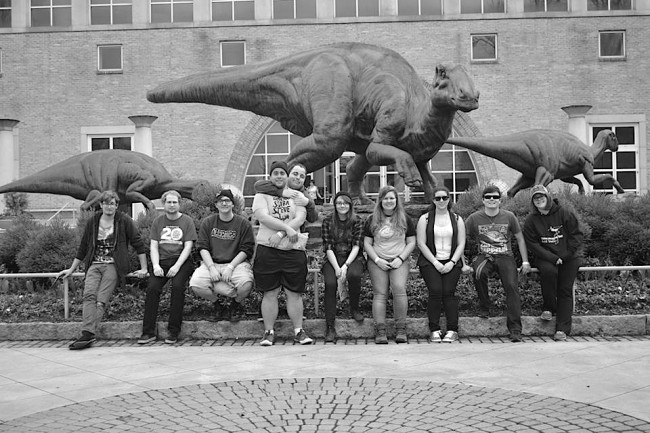

Photo Courtesy / Rebecca Carroll
By Chris Powers
SC Contributing Writer
Over spring break, the Marine Science Club and the Biology Club traveled to Chincoteague, Virginia, and Atlanta, Georgia, to visit the Chincoteague Bay Field Station and the Georgia Aquarium.
While in Virginia, the Marine Science Club and Biology Club coordinated with Campus Activities Board (CAB), and the three groups participated in the Chincoteague Bay Field Station’s annual program Alternative Spring Break.
Alternative Spring Break allows students to complete over 12 hours of volunteer work, including invasive species control, environmental restoration, and general maintenance work at the field station. The Chincoteague Bay Field Station enlisted a variety of students from across the PASSHE universities.
Lauren Brennan, a member of the Marine Science Club, said, “It was a rewarding experience and it made me even more eager to get out and work within my field.”
Alex Pratz, a biology major, said, “It was something I got to cross off of my bucket list and one of the only times I felt like every move I made actually made a difference in the world, even if it was in tiny pieces.”
After leaving the Chincoteague Bay Field Station, the Marine Science Club and the Biology Club parted ways with CAB and continued down to Atlanta, Georgia.
While there, the students participated in a variety of experiences. First, the clubs took a self-guided tour of the Coca-Cola factory.
Briana Magistro, a senior majoring in chemistry at ESU, said, “It showcased a lot of interesting facts about coke history. My favorite feature was getting to try coke products from around the world.”
The clubs then took a guided tour of the CNN headquarters, where they saw recording and broadcasting of the news.
Zachary Gotthardt, a biology major and Biology Club member, said, “It never occurred to me that so much work was put into an hour-long news program.”
After these two small trips, the clubs visited the Georgia Aquarium.
At the Georgia Aquarium, there are four whale sharks in a 6.8 million gallon tank. Additionally, in this tank, there are also several manta rays.
This exhibit is important because it is one of the few exhibits where whale sharks are kept in captivity.
Whale sharks are of exceptional size and keeping them in captivity is exceptionally difficult. They are handfed 20 pounds of food between the four of them directly by aquarists employed at the aquarium.
Magistro said, “The whale sharks were definitely some of the most amazing things I’ve ever seen.”
After the Georgia Aquarium, the clubs also visited the Zoo Atlanta, where a wide variety of animals, including giant pandas, silverback gorillas, and orangutans, are located.
Gotthardt said, “It was refreshing to see a variety of new organisms that are not seen in Pennsylvania.”
Magistro went on to say, “Getting to go to Atlanta with the Marine Science and Biology Clubs was an awesome experience. I loved that we were able to go to so many different places, and … I really loved getting to travel around downtown Atlanta and try new things, like city gyros and the waffle house.”
The Biology Club meets every Tuesday at 2:00 PM in Kurtz Lecture Hall, and the Marine Science Club meets directly afterward in the same location, every Tuesday at 2:30 PM.
Email Chris at:
cpowers@live.esu.edu

